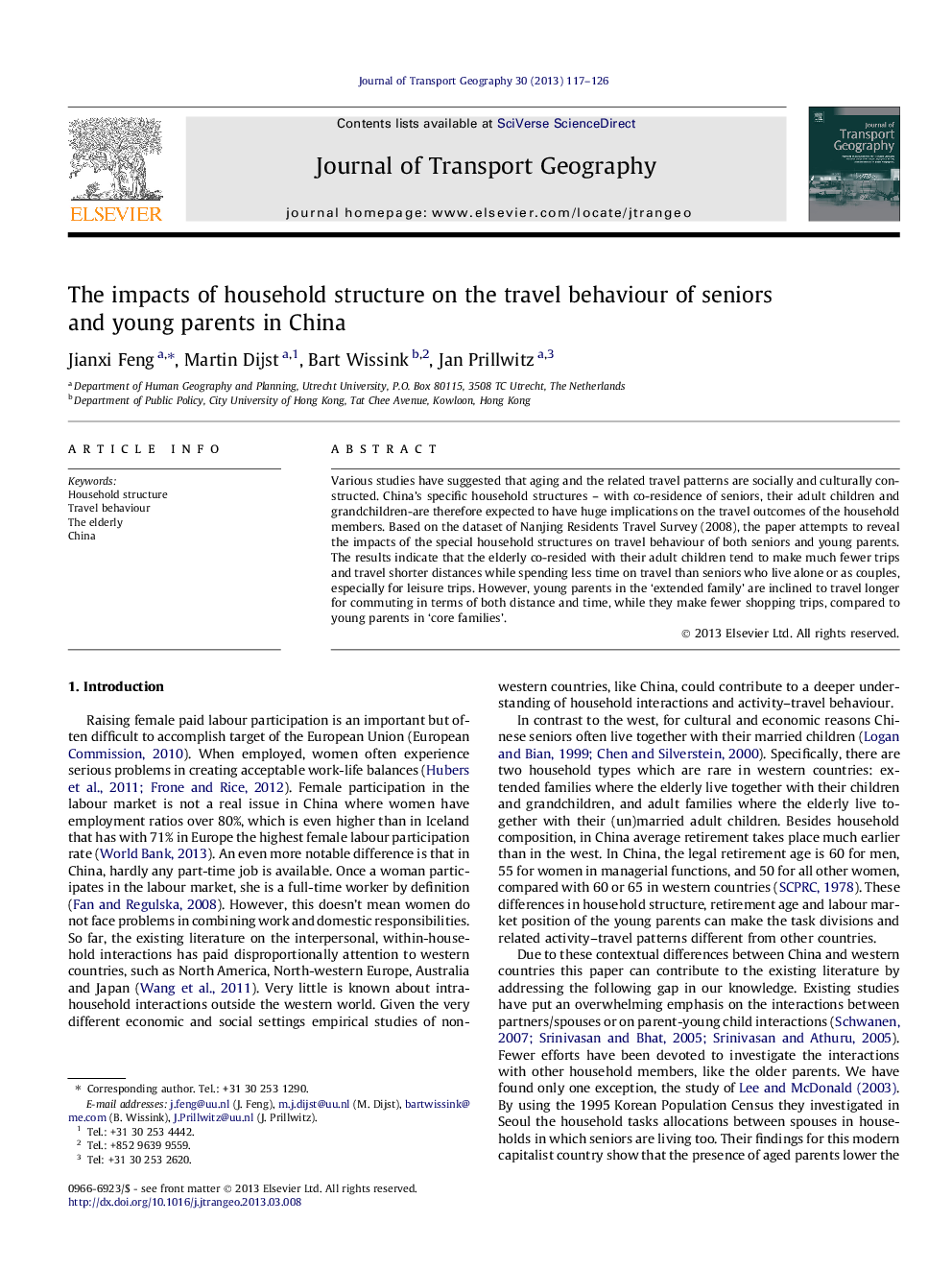| Article ID | Journal | Published Year | Pages | File Type |
|---|---|---|---|---|
| 1059363 | Journal of Transport Geography | 2013 | 10 Pages |
•Co-residing with their adult children make the elderly undertake fewer trips and travel shorter distances.•Young parents in extended families tend to travel longer for commuting compared to those in core families.•Multi-generation neighbourhoods are highly recommended.
Various studies have suggested that aging and the related travel patterns are socially and culturally constructed. China’s specific household structures – with co-residence of seniors, their adult children and grandchildren-are therefore expected to have huge implications on the travel outcomes of the household members. Based on the dataset of Nanjing Residents Travel Survey (2008), the paper attempts to reveal the impacts of the special household structures on travel behaviour of both seniors and young parents. The results indicate that the elderly co-resided with their adult children tend to make much fewer trips and travel shorter distances while spending less time on travel than seniors who live alone or as couples, especially for leisure trips. However, young parents in the ‘extended family’ are inclined to travel longer for commuting in terms of both distance and time, while they make fewer shopping trips, compared to young parents in ‘core families’.
